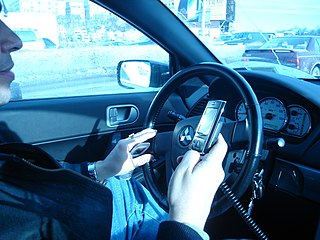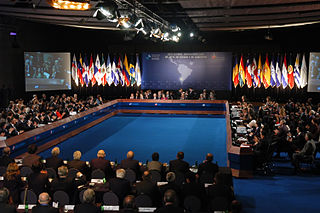 W
WA 300-page iPhone bill from AT&T Mobility mailed in a box was the subject of a viral video made by YouTube personality Justine Ezarik, best known as iJustine, which became an Internet meme in August 2007. Ezarik's video focused on the unnecessary waste of paper, as the detailed bill itemized all data transfers made during the billing period, including every email and text message. Stories of unexpected billing issues began to circulate in blogs and the technical press after the Apple iPhone's heavily advertised and anticipated release, but this video clip brought the voluminous bills to the attention of the mass media.
 W
WVarious laws in the United States regulate the use of mobile phones and other electronics by motorists. Different states take different approaches. Some laws affect only novice drivers or commercial drivers, while some laws affect all drivers. Some laws target handheld devices only, while other laws affect both handheld and handsfree devices.
 W
W"I Wanna 1-2-1 With You" is a mobile telephone-themed novelty-pop song by "Solid Gold Chartbusters", written by musicians Guy Pratt and Jimmy Cauty, and comedy writer Lloyd Stanton. The lead singer was Denise Palmer; the sleeve also credits Tessa Niles for vocals and Debbie Chazen as the voice of a switchboard operator. Due to the involvement of Cauty (KLF) and Pratt, Virgin Records touted Solid Gold Chartbusters as "The World's First Novelty Supergroup".
 W
WIn Japan, mobile phones became ubiquitous years before the phenomenon spread worldwide. In Japanese, mobile phones are called keitai denwa (携帯電話), literally "portable telephones," and are often known simply as keitai.
 W
WMobile phone use while driving is common but it is widely considered dangerous due to its potential for causing distracted driving and crashes. Due to the number of crashes that are related to conducting calls on a phone and texting while driving, some jurisdictions have made the use of calling on a phone while driving illegal. Many jurisdictions have enacted laws to ban handheld mobile phone use. Nevertheless, many jurisdictions allow use of a hands-free device. Driving while using a hands-free device is not safer than using a handheld phone to conduct calls, as concluded by case-crossover studies, epidemiological, simulation, and meta-analysis. In some cases restrictions are directed only at minors, those who are newly qualified license holders, or to drivers in school zones. In addition to voice calling, activities such as texting while driving, web browsing, playing video games, or phone use in general can also increase the risk of a crash.
 W
WNatel is a generic trademark used in Switzerland and in Liechtenstein for 'mobile phone'.
 W
WOver the Air was an annual mobile technology-focused overnight hack day event held in London from 2008 to 2016. The two-day event would include practical and educational talks and a hacking competition. Sponsors of the event have included the BBC, Bluevia, Nokia, PayPal, and Vodafone. Some of the ideas developed at Over the Air have been turned into commercial services.
 W
WVeníamos bien, pero de golpe pasaron cosas or simply abbreviated as pasaron cosas, is a phrase that was uttered by Mauricio Macri, former president of Argentina on 17 June 2018 during an interview with Jorge Lanata, well-known for being a fervent opponent of kirchnerism as well of the austere policies of Macri, while trying to justify the worsening of the country's economic situation in the last two months, in which an exchange rate run occurred that culminated in the resignation of the president of the Central Bank of Argentina, Federico Sturzenegger on 14 June, while resigning to the post, it was left an erratic accumulated inflation of 95% and a devaluation of the peso of 175%. By pronouncing the phrase, Macri sought to release the government from any responsibility regarding the country's crisis, stating that it was the product of a greater worldwide situation, in which the world was in a "very volatile financial situation", remainings of the financial crisis of 2007–2008.
 W
WPhubbing is a term coined as part of a linguistic experiment by Macquarie Dictionary to describe the habit of snubbing someone in favour of a mobile phone. In May 2012, the advertising agency behind the campaign, McCann, had invited a number of lexicographers, authors, and poets to coin a neologism to describe the behaviour. The word "phubbing," a portmanteau of phone and snubbing, was first described by McCann Group Account Director Adrian Mills, who was working with David Astle. The term has appeared in media around the world and was popularized by the Stop Phubbing campaign created by McCann.
 W
WPocket dialing is the accidental placement of a phone call while a person's mobile phone or cordless phone is in the owner's pocket or handbag. The recipient of the call typically hears random background noise when answering the phone. If the caller remains unaware, the recipient will sometimes overhear whatever is happening in the caller's vicinity. A pocket-dialed call can continue for many minutes, or until the recipient's voice mail system ends the call.
 W
WPopSockets LLC is a privately owned consumer-electronics accessory company that produces removable grips for smartphones. The company was founded in 2012 by David Barnett, who was at the time a philosophy professor.
 W
W¿Por qué no te callas? is a phrase that was uttered by King Juan Carlos I of Spain to Venezuelan President Hugo Chávez, at the 2007 Ibero-American Summit in Santiago, Chile, when Chávez was repeatedly interrupting Spanish Prime Minister José Luis Rodríguez Zapatero's speech. Following international attention, the phrase became an overnight sensation, gaining cult status as a mobile-phone ringtone, spawning a domain name, a contest, T-shirt sales, a television program and YouTube videos.
 W
WSMS language, textspeak, or texting language is the abbreviated language and slang commonly used with mobile phone text messaging, or other Internet-based communication such as email and instant messaging.
 W
WUnited States v. Graham, 846 F. Supp. 2d 384, was a Maryland District Court case in which the Court held that historical cell site location data is not protected by the Fourth Amendment. Reacting to the precedent established by the recent Supreme Court case United States v. Jones in conjunction with the application of the third party doctrine, Judge Richard D. Bennett, found that "information voluntarily disclosed to a third party ceases to enjoy Fourth Amendment protection" because that information no longer belongs to the consumer, but rather to the telecommunications company that handles the transmissions records. The historical cell site location data is then not subject to the privacy protections afforded by the Fourth Amendment standard of probable cause, but rather to the Stored Communications Act, which governs the voluntary or compelled disclosure of stored electronic communications records.
 W
WYondr is an American company founded by Graham Dugoni in 2014. It makes mobile phone pouches which close with a proprietary lock, similar to those of a security tag, and a magnetic device for unlocking them.